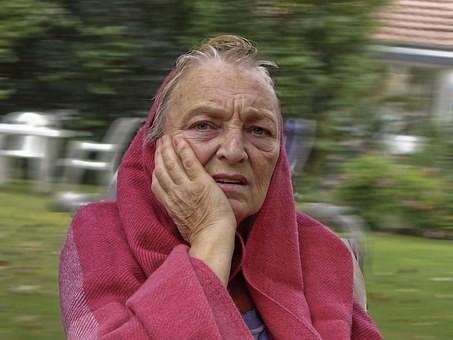THE FUTURE OF PRIMARY HEALTH CARE IN NIGERIA
Four year old Nana’s diarrhoea had started suddenly. Her mother had thought there was no cause for alarm. It became a shock to her when Nana began to have seizures. She had rushed her to the village herbal doctor who had bathed her with various concoctions and had assured her that Nana would be fine the next day. The next day was greeted by loud wails from the little hut Nana’s mother shared with her seven children. Nana has been found dead on the mat she shared with her siblings. The co-wife of Nana’s mother had been accused for turning into an owl to strangle Nana at night. The accusation had waned when the cold hands of death began to snatch each of the villagers one after the other. None could figure out what the problem was. They did not understand what cholera outbreak was. In their ignorance, the epidemic snatched them away like a hawk would and each waited helplessly for his/her turn. They had thought the gods of their lands were angry with them. Now, these and many more similar health issues are the torn that has eaten deep into the lives of many rural dwellers especially in developing countries like Nigeria. Why? So many reasons, including their lack of access to health care. The future of primary health care in Nigeria is not far way. The future is seconds away. First, let’s talk about the present state of primary health care in Nigeria because the future largely depends on the conditions of today. ![image]
( )
)
What is primary health care? It simply means, bringing health care to the door step of the people. It was defined in the Alma-Ata Declaration as essential health care based on practical, scientifically sound and socially acceptable methods and technology made universally accessible to individuals and families in the community through full participation and at a cost that the community and country can afford to maintain at every stage of their development in the spirit of self reliance and self determination. It is made up of the following components:
(1) Immunisation against the major communicable diseases.
(2) Prevention and control of locally endemic and epidemic diseases.
(3) Maternal and child health, including Family planning.
(4) Environmental sanitation; adequate supply and basic sanitation.
(5) Health education: Education on prevailing health problems and methods of controlling them.
(6) Adequate Nutrition: Promotion of food supply and proper nutrition.
(7) Provision of essential drugs.
(8) Appropriate treatment of common diseases and injuries.
Recently, mental and dental health care; as well as primary eye care have been included as other components of primary health care.
Following from above, the practice of primary health care is based on the following principle:

(1) Essential health Care.
(2) Community participation.
(3) Equity and equitable distribution.
(4) Use of appropriate technology.
(5) Self reliance.
(6) Intersectoral collaboration.
The goal of primary health care (PHC) was to provide accessible health for all by the year 2000 and beyond. Unfortunately, this is yet to be achieved in Nigeria and seems to be unrealistic in the next decade. The PHC aims at providing people of the world with the basic health services. Though PHC centres were established in both rural and urban areas in Nigeria with the intention of equity and easy access, regrettably, the rural populations in Nigeria are seriously underserved when compared with their urban counterparts. About two-thirds of Nigerians reside in rural areas therefore they deserve to be served with all the components of PHC. PHC, which is supposed to be the bedrock of the country's health care policy, is currently catering for less than 20% of the potential patients. While most PHC facilities are in various state of disrepair, with equipment and infrastructure being either absent or obsolete, the referral system is almost non-existent. What are the challenges that have plagued the PHC system in Nigeria? According to a study carried by Josephat M. Chinawa, to find out the factors militating against the health system in Nigeria, he observed from this study that health workers agreed to the fact that increased workload, safe and efficient transport to work, and government participation are in existence in all the PHC centres studied, while equipment and manpower on one hand and job security and salary on the other hand are not available. Other factors, in this study that were seen to strongly impede the flow and establishment of PHC are the lack of both job security and good salaries. These factors dampen the motivation of primary health workers. In the foregoing, several factors characterize motivation of health workers and these include financial aspects, career development, continuing education, health facility infrastructure, availability of resources, relationships with the management of the health facility, and personal recognition. Indeed, there should be a clarion call to develop strategies that include and emphasize more incentive mechanisms for health care providers, especially in rural areas, to encourage them to work and remain in these regions. Existing community participation, culture and religion, access to safe and clean water, and steady electricity are the factors that had negative impact on the implementation of PHC ![image]
( )
)
According to another study carried out by Abdulraheem I. S. et al, they also stated the problem areas in the implementation of PHC. According to their study, they noted that the essence of health care to the local government is to make the management of PHC services more effective and closer to the grassroots. However, in view of the level of health awareness, one begins to question the extent to which health care has been taken to the doorstep of the rural people. One of the hindrances to the development of health especially in Nigeria has to do with insufficient number of medical personnel as well as their uneven distribution. The Third Development Plan (1975 to 1980) for Nigeria focused on the inequity in the distribution of medical facilities and manpower/personnel. Despite the desire by the government to ensure a more equitable distribution of resources, glaring disparities are still evident. The deterioration in government facilities, low salaries and poor working conditions had resulted in a mass exodus of health professionals (Iyun, 1988). There has been too much concentration of medical personnel at the urban to the neglect of the rural areas.
According to the study, another problem in the management of PHC is transportation. It has been reported in LGA PHCs that there are not enough vehicles for workers to perform their task especially to the rural areas. Immunization outreach services are inadequately conducted. The maintenance culture of the existing vehicles is poor while PHC vehicles were used for other purposes other than health related activities. To put succinctly, many of the PHC vehicles donated by UNICEF in the 1980s are totally non-functional (Wunsch and Olowu, 1996). Access to many parts of the communities is a function of natural topographical and weather conditions ; inadequate finance; over dependence of the LGA on federal, state and international agencies for support - the internally generated revenue of the LGA is meagre (Adeyemo, 2005); low level of community involvement (Omoleke, 2005), general misuse and abuse of the scarce resources by some political and administrative leadership and high leadership turnover at LGAs (Adeyemo, 2005).
In their study, they also noted the health needs and problems of rural populations. According to the study, an assessment of these problems and needs is important to assure easy accessibility to health care services by rural people. They listed the health and health-related problems of rural people. They are:
i. Poverty associated with poor housing, unsatisfactory environmental sanitation, polluted water and food which predispose to malnutrition and infectious diseases.
ii. Uneven distribution of health services, and shortage of physicians, nurses and trained health personnel in rural areas.
iii. High mortality and low average life expectancy, due to lack of access to health services. It is unfortunate that systematically collected data are lacking about levels of morbidity and mortality in rural communities. Despite the availability of PHC services, some rural dwellers in Nigeria tend to underuse the services due to perceptions of poor quality and inadequacy of available services (Sule Abdulraheem et al., 
Various reasons can be adduced for the underuse of the services provided: a) difficulties associated with transportation and communications ; b) high rates of illiteracy among rural peoples ; c) traditional conservatism and resistance to ideas from outside; deep rooted traditions and customs, including health beliefs and practices, which increase the patronage of the services of traditional healers; d) lack of understanding of PHC among health professionals and decision-makers resulting in poor quality services; and e) heath worker attitude to work (frequent abstinence from the work place) (Adeyemo, 2005).
iv. Endemic diseases prevalence, such as malaria and trachoma.
Clearly most of the problems and needs of rural areas are multifactoral in origin and require multidisciplinary interventions (Abiodun et al., 2010).
The study also noted that some of the health workers are untrained and the trained ones lack the modern concept of PHC practice.
With the current challenges plaguing the PHC system in Nigeria, does the future really look promising? Are there ways we can adopt to sail the boat of primary health care to safety in Nigeria and make her future beautiful? Still on the study carried out by Abduralreem et al, they suggested the following as a way of improving the future of primary health care in Nigeria. They are:
( 1 ) The need for the Local government as well as all the other tiers of government to increase their allocation to the health sector. Local governments on the other hand should be more inward-looking and aggressive in the area of internally-gene
rated revenue. This is to reduce the dependence on the federation account in financing health programmes.
( 2 ) Priority should be given to improved living condition of the people beyond the present poverty level, so as to enhance better healthy living. To this end, intensive and effective health education of the public must be of necessity and be reinforced in other to eliminate such diseases as malaria, typhoid and other infectious diseases.
( 3 ) The need for maintenance of minimum health standard, improved housing condition, adequate potable water supply, environmental sanitation and food supply for the sustenance of good health condition.
( 4 ) Good leadership and political stability is desirable to provide enabling environment for the implementation of the PHC programmes. This will invariably reduce the problem of abandoned projects in the health sector.
( 5 ) The need to put a stop to unnecessary responsibilities being given to LGAs by the state governments. It is a common occurrence for federal and state governments to shift part of their responsibilities to LGA, such as purchase of non-functioning generator, fridges, ice liners and solar fridges and imposition of sponsored programmes. All these are drains on the lean purse of the local governments with its attendant effects on health services delivery.
( 6 ) Adequate supervision, monitoring and evaluation of programmes should be pursued with vigour and required manpower provided. The Nigerian health policy makers should give priority to the training of more rural health workers. This is to prevent the drift of rural health workers from the rural communities to the urban centres.
( 7 ) More financial and other incentives should be provided to prevent the high staff turn-over of health workers.
In conclusion, the future of primary health care in Nigeria is not far away. The future is seconds away and this future can be made beautiful if primary health care is truly at the doorstep of the people. But nothing good comes easy. This would demand hard work from all and sundry. If these and many more strategies are effectively put in place, Nigerians would adequately use the basic health services provided by primary health care and then, the future would echo the ageless phrase, “Health is wealth”, because good health is the bedrock of a nation.

Pictures source : pixabay
You really put up a nice articles but you need it work on how to make post formatting by putting spaces and making it very easy for readers.
I really do love it, do you know about how to format a post, you can read more on it and you can contact us on discord.
Always endeavor to use the #bigwaves and #nigeria tags for easy curator of your post.
Hope to see more of you
Thanks boss, I have followed you